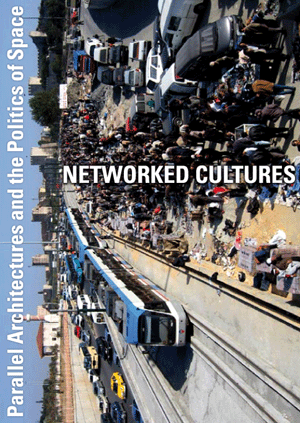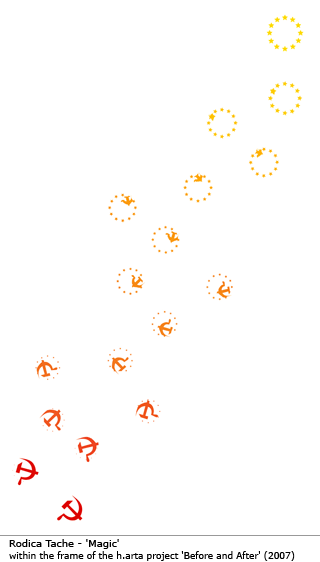_login
registrieren
_5 Factories - Worker Control in Venezuela Dario Azzellini & Oliver Ressler
_ALMOSTREAL ECF
_AnArchitektur Jesko Fezer
_Arizona Road Azra Aksamija
_Balkan Konsulat rotor
_Bata-ville: We are not afraid of the future Nina Pope + Karen Guthrie / www.somewhere.org.uk
_Black Benz Race krcf in collaboration with Felix Stalder, Arben Gecaj, Faton Topalli and Osman Osmani
_Black Sea Files Ursula Biemann
_Camp La Jolla Military ParkOwen Mundy
_CHANGE REALITY: Renaming the Streets of Zagreb REINIGUNGSGESELLSCHAFT
_Conceptual Paradise. There is a place for sophistication Stefan Roemer
_de-regulation Irit Rogoff, Kutlug Ataman, Stefan Roemer

____________Bloomberg SPACE, London
____________Kumu Art Museum Tallinn
____________Open Space, Open Systems - Vienna
____________CAA 2011 Conference, New York
____________Forum Stadtpark, Graz
____________Symposium, Istanbul
____________lungomare, Bozen/Bolzano
____________Metropolis Biennale 2007-17, Copenhagen
____________new publication available now
____________Mestna Galerija, Ljubljana
____________Livestream of Networked Cultures documentary
____________
|
I don't know how to explain ...
Anca Gyemant
I don’t know how to explain this. A discussion with Milena. Someone, an acquaintance of hers who had visited Bucharest, was impressed by the House of the People and the Victory of Socialism Boulevard (I think this was the name). A great and impressive building which glorifies an idea, during the times when there were still ideas which could be unanimously glorified. Now there are only houses and banks headquarters being built. I mentioned something on the personality cult, on Ceausescu, on the hard life during communism. Something about the buildings demolished to make place for the blocks of flats (and the House of the People), but is this an argument?! What importance can all these have, our lives during communism, without the greatness of an idea which was being made concrete in the new buildings? It’s hard to explain because, of course, it would have been nice to be true, to believe that things really were this way, that the thing we are talking about really existed...
How should I speak about Romania without playing the role of the one who speaks about Romania? The very moment when I wrote this statement I am already playing the role. In this case, what could I be talking about? What can I do?
From now on it doesn’t matter. We inhabit the youngest European territory. In the Danube Delta and everywhere.
We have all decided: the moment we applied for this residency we accepted also the labelling which comes with it.
 My block of flats, where cockroaches are coming from the basement and where the walls are so thin that the alarm clock of my neighbours wakes me up in the morning was also built for an idea. What an intense nostalgia, in some evenings, when the sun sets and the lights in the neighbourhood are turned on, when in the sunset light which makes all windows glow you realise you would want to believe it could have been different, but it is so hard to explain... My block of flats, where cockroaches are coming from the basement and where the walls are so thin that the alarm clock of my neighbours wakes me up in the morning was also built for an idea. What an intense nostalgia, in some evenings, when the sun sets and the lights in the neighbourhood are turned on, when in the sunset light which makes all windows glow you realise you would want to believe it could have been different, but it is so hard to explain...
I don’t know how I could say this thing shortly and without it sounding pathetic, and also to make myself understood: I hate all nationalist and conservative behaviours, all the ideas about religion, family, purity of blood, richness and prestige, all these things which don’t have other role but to make the others suffer. Still, how can I speak about the leftist ideas in which I believe without objectively relating to our communist past? For me, these two things do not exclude each other in any way, but talking about this when I am not in Romania seems much more difficult.
The three of us thought of a solution, once, after some misunderstandings and circular discussions about what communism was (a materialised dream which people outside it could yearn for with all heart, a bad dream which people inside were hoping to wake up from, someday?) If you are accused that, in the name of ideas which otherwise you share too, you don’t have the right to discuss about something that happened to you in reality, then maybe the solution is to reduce everything to your most intimate experiences. To talk about how you used to thank during the public celebrations Comrade Nicolae Ceaucescu for your happy childhood. How you used to read and write everything at the candle light because the electricity was cut off. How you used to queue for bread or milk, etc... Naturally, you can always bring on the discussion table personal (and sentimental) arguments and see what reaction they will raise. An embarrassed smile, maybe. But what do you do in Romania? How do you explain there that the leftist ideas are important and hope resides in them, at home where everybody queued and read and wrote at the candle light? I don’t know...
I don’t know what to say except that we will see...
Rodica: ‘Look, our countries are neighbours and we have the feeling we shared the same history, and still...’
I heard in other countries some people thought it was our choice to have the electricity cut off every evening, that we wanted to make a sacrifice for the country. As if something was our choice ever...
In 1966 abortion was forbidden, as well as contraception methods, and the conditions in which you could divorce were more constraining.
What’s the English word for it? Ah, excuse me for being so confuse ...
You tell of something (for example, the education system) and you are being answered: ‘it is exactly the same for us’. And although you know, from your own experience, that it is very different, it is still too complicated to explain and it would take so much time and it would be so difficult to avoid a stereotypical position and it would maybe also sound rude or stupid to say ‘no, no, we are different’, that you better keep silent. Or, in other cases, you discuss infinitely and bring arguments (Mariuca does this).
Nevertheless, sometimes it is so nice and comforting to hear people telling you: ‘I know, I understand, it was the same for us.’
Sometimes you see very clearly that if your experiences are complicating the discussion in a disagreeable way, then it is better that they are ignored. The problem is just that we speak from different angles. And I speak from the shadowy one.
Vienna, 2007
Translated by Raluca Voinea
I don’t know how to explain … is part of the h.arta project Before and After (2007).
|
+ Ana Dzokic and Marc Neelen
+ Ayreen Anastas and Rene Gabri
+ atelier d'architecture autogérée (aaa)
+ Asya Filippova
+ Sophie Hope and Sarah Carrington
+ Branca Curcic
+ Christoph Schaefer
+ Campement Urbain
+ Claudia Zanfi
+ Despoina Sevasti and Poka-Yio
+ Erden Kosova
+ Helmut Batista
Radio as Spatial Practiceby: Paulo Tavares
Survival Kits: Artistic Responses to Globalizationby: Marga van Mechelen
What Ever Happened to Cultural Democracy?by: Sophie Hope
I don't know how to explain ...by: Anca Gyemant
Trading Placesby: Peter Moertenboeck & Helge Mooshammer
Milosevic as Architectby: Srdjan Jovanovic Weiss
When the Unavoidable Knocks at the Door ...by: Gulsen Bal
Tracing Translocality: The BlackBenz Raceby: Felix Stalder
travelling lexicon towards a global positioning systemby: Celine Condorelli
|

 My block of flats, where cockroaches are coming from the basement and where the walls are so thin that the alarm clock of my neighbours wakes me up in the morning was also built for an idea. What an intense nostalgia, in some evenings, when the sun sets and the lights in the neighbourhood are turned on, when in the sunset light which makes all windows glow you realise you would want to believe it could have been different, but it is so hard to explain...
My block of flats, where cockroaches are coming from the basement and where the walls are so thin that the alarm clock of my neighbours wakes me up in the morning was also built for an idea. What an intense nostalgia, in some evenings, when the sun sets and the lights in the neighbourhood are turned on, when in the sunset light which makes all windows glow you realise you would want to believe it could have been different, but it is so hard to explain...